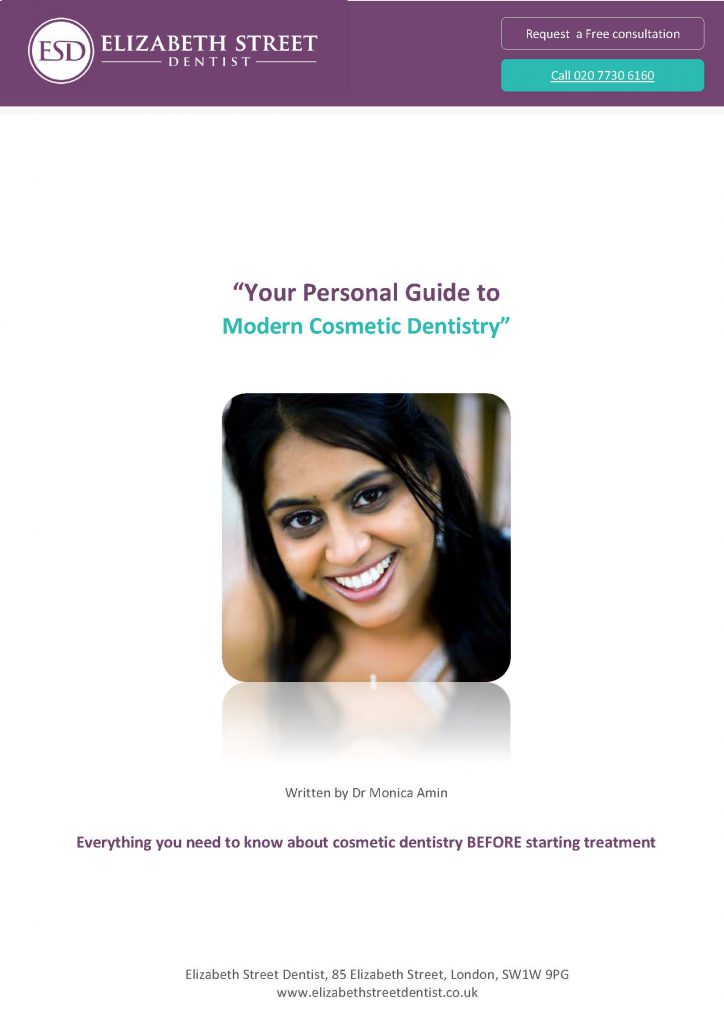Dental Crowns London
A dental crown is a lab-made restoration that provides 360-degree covering for a tooth that may have been damaged or weakened by decay. It is effectively an artificial cover that fits over your tooth to provide a natural look and function, as indistinguishable as possible from your real teeth. At Elizabeth Street Dentist we provide a treatment service for metal free dental crowns in London and nearby areas.
Free cosmetic dentistry information pack

download our free information pack today
A 33 page report full of the most useful information, ideal if you’re thinking about any aspect of cosmetic dentistry
- The costs and lowest price alternatives
- Your options and choices for treatment
- Are you suitable for treatment?
- How you can have whiter, straighter and better looking teeth?
- How long does each treatment take?
- Plus lots more…

When you might need a dental crown
While many types of tooth damage or decay can be treated with a filling, in some cases the damage to the tooth may require a level of restoration for which fillings would be insufficient. If the tooth is not “vital†– for example, following root canal treatment – a dental crown can help protect the tooth from breaking
Types of dental crown
There are three main types of dental crown, each made from different materials.
- Metal-based crowns – these are made from a blend of metals to produce a dental crown with a gold or silver colouring.
- Bonded porcelain crowns- created from porcelain, which is fused onto a metal substructure, creating the appearance and colour of a natural tooth
- Metal-free tooth-coloured crowns- made with 100 per cent metal-free materials, these dental crowns provide the optimum cosmetic results, as close as possible to a tooth’s natural colour and look.
Preparing and fitting a dental crown
At the initial appointment your dentist will carefully trim the tooth down to a core that will accommodate the crown. The shade of the crown will usually be chosen with you at the dental practice, however in some cases you may be referred to the dental lab for consultation with the dental technician who will be preparing your crown. The core of your tooth will be covered with a temporary crown while the crown is created at the lab. At your second dental appointment – usually around 10 days after the first – the temporary crown will be removed and your new, permanent dental crown will be fitted.
Online Leaflets:
For general information on a condition and treatment? Visit the British Dental Health Foundation. The BDHF is an independent charity dedicated to raising public awareness about the benefits of improving oral health.

